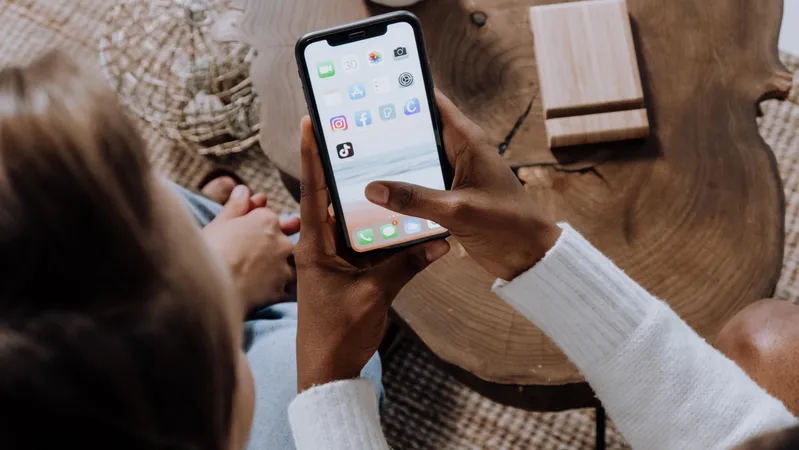Add, remove & assign phone numbers on demand
Manage, respond to, and share calls with your team
Send & receive any message you need to
Keep contact details in one place with a shared phonebook
For on-the-go teams to share messages, calls, and contacts
A full directory of all our included features

Does liking my reviews on Google affect SEO?

Small businesses have always thrived (and died) by word of mouth. Long before technology made it easier to communicate with customers, a business could be negatively impacted if too many people said less-than-nice things about it. Today, customer reviews are part and parcel of living in a digital world, but still – just one negative customer review can damage a business’s reputation.
When it comes to Google reviews, small business owners often wonder whether spending time engaging with customers via review likes is something worth focusing on. There is no doubt that Google My Business (GMB) is an incredibly important tool for small businesses. It also allows you, as a business owner, to ‘like’ reviews. But what does this mean from an SEO-perspective?
Why Google reviews matter
Before we get into whether likes affect SEO, let’s talk about why reviews are so critical.
A vital part of GMB for small businesses is its ability to bring in reviews. Google reviews hold a lot of power. They will help build your business’s reputation and expand your reach to potential new customers, but they can also prevent people from giving your business a try.
The impact reviews have on a company cannot be overstated. Nine out of ten consumers look at reviews before making a purchase. The more positive reviews you have, the higher you’ll show in search results. Something that can also increase the effects of good feedback is Google review likes.
How the like button works
The like button was introduced in 2016 and gave anyone logged into their Google account the chance to ‘like’ a review they find.
If you haven’t noticed this little detail, you’re not alone. Many business owners are surprised to find out this even exists. It’s easy to miss it underneath the reviews because it’s not front and centre.
The little thumbs-up appears when you expand the reviews, and visitors simply click on it when they see something they like. There isn’t a dislike button, but the person can just click the button again to remove it.
Does liking good reviews make a difference?
Google reviews with more likes do tend to perform better, but that doesn’t necessarily mean they’re always positive reviews. Online users can like negative reviews too, which means these can jump to the top of your business profile if there are positive reviews without likes.
Another benefit of the like button is it gives you a chance to understand the impact of reviews on your brand. Still, the number of likes you have isn’t 100 per cent crucial. If you have a lot of positive feedback but no likes, you’ll still be doing well in ranking in the search results.
So even though they can help, it’s not nearly as significant as other aspects of your GMB.
Are there disadvantages to review likes?
Review likes are a relatively minor feature in the grand scheme of running a business, so it’s not something you will need to constantly monitor. However, it is good to be aware that negative reviews can get liked too. That means they could show up higher in your reviews and on your GMB.
Likes on your Google reviews can also lead to potential spam. If you’re subject to spammers, you might notice an influx of likes on positive or negative reviews, but this shouldn’t worry you too much. Overall, Google has a number of robust systems to prevent spam and detect this type of activity.
Best practices for Google review likes
The like button isn’t something you need to add to your Google business profile. It’s just there as soon as you get feedback. You don’t actively need to do anything other than keep an eye out for likes.
Anyone can like a Google review, including business owners and their employees, which leaves this little button in a bit of a grey area. And since Google doesn’t have any clear guidelines for best practices, we thought we’d share some research:
Like responsibly
On some occasions, it’s good for you as a business owner to like a review. Suppose someone leaves a positive review—or even a not-so-glowing one—and you appreciate the comment. It’s completely fine that you like the comment – in fact, we would encourage it.
Doing so shows that you engage with your customers or clients and are open to feedback. This is one of the times that it is most appropriate to like your reviews on Google.
Don’t have employees like reviews
This is a rule you should always follow. It makes your reviews more susceptible to getting labelled as spam. Too many likes over a short period will look suspicious to Google and get flagged by their automated spam detection. Plus, if your business is putting customer service at the front and centre of everything it does, you shouldn’t need to rely on employees liking reviews.
Don’t pay for likes
Some businesses pay for reviews, and likes are no different. But this is a dishonest practice that can do more harm than good. Google’s automated spam detection software will also flag this because the activity won’t appear to be organic.
When it comes to likes, it’s best to let them accumulate naturally while also not worrying too much about getting them.
Respond with value
Likes aren’t just there for the sake of liking. They present a valuable opportunity to start a discussion and learn more about what you’re doing right – or what you need to address. If a genuine, thorough review has a lot of likes, you can use that information and respond accordingly.
Answer questions, address concerns, or simply thank people for their business. Communication is key, but no matter how you choose to respond, always demonstrate that your business cares about its customers.
In short
The Google review like button has its advantages, especially if you’re getting them on good reviews. When people like positive comments, these are the first thing potential new customers will see when researching your business, and the like button will increase the visibility of this feedback.
It’s a handy little feature that could help you rank, but you don’t need to place too much emphasis on getting likes. Allow them to come organically and choose to spend your time responding to reviews with value for the best SEO and business results.

Continue reading
Google and Facebook reviews are a prime source for people looking to know more about your business. But which one has more power? Which one should you focus on? Which is better for small businesses?
Based on the best practices of several high-performing businesses, here are some proven suggestions on how to get more reviews on Google.




